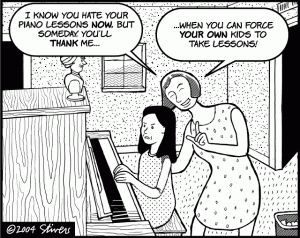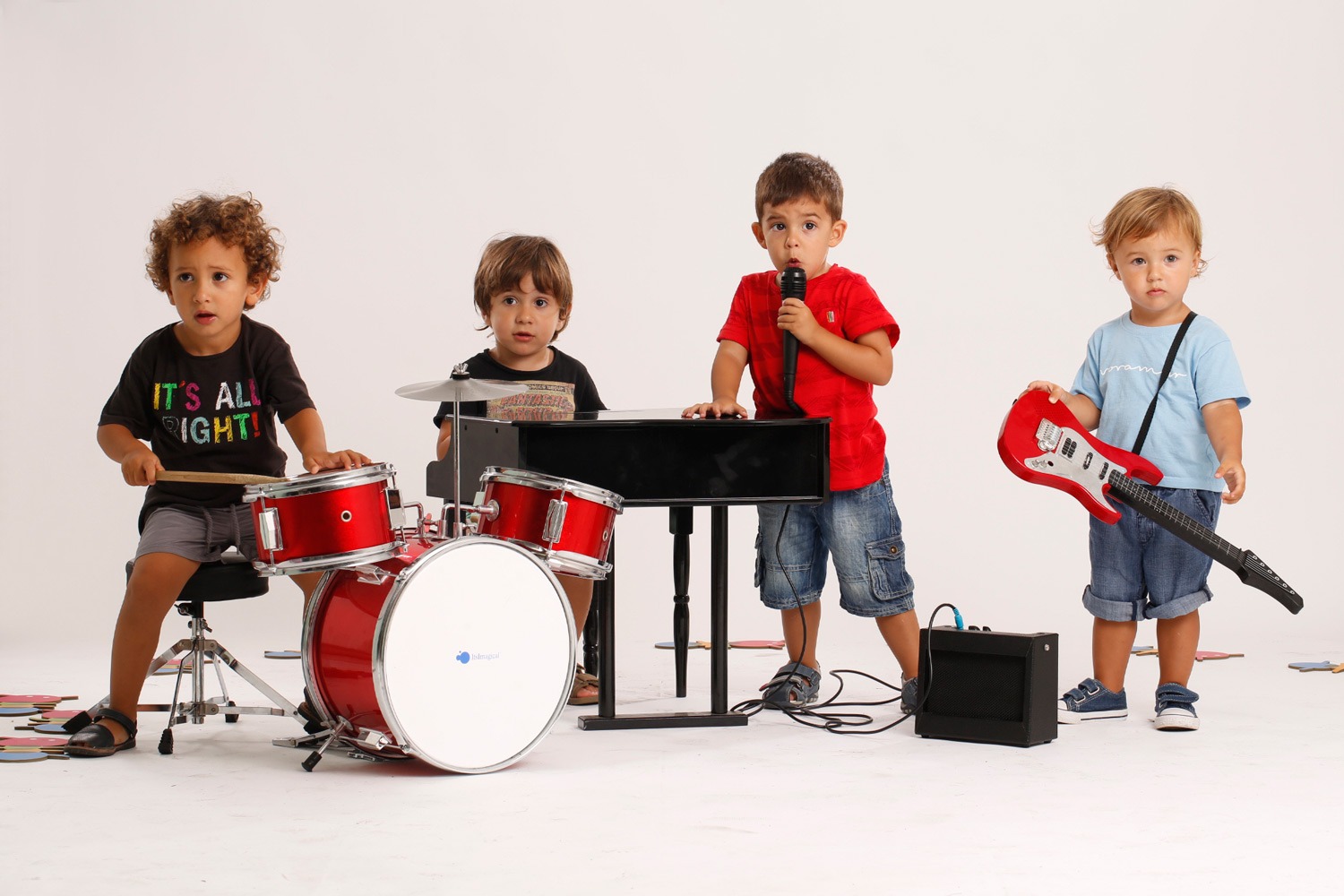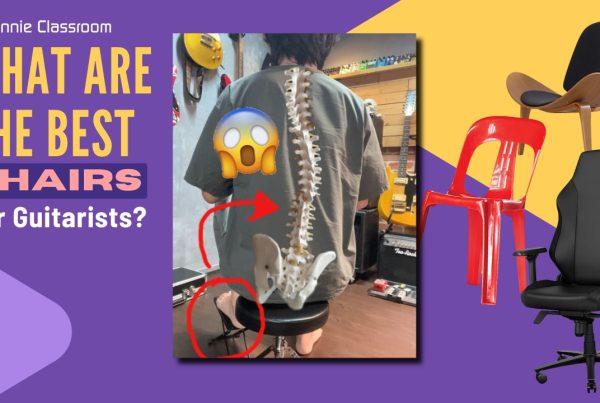Do we push our children or not, to learn a musical instrument? Even if you didn’t know before, you will – after reading this – value the cognitive benefits learning an instrument can give children. And help them later on as adults too. Based on our experience at Vinnie Classroom, we firmly believe that having a healthy passion, like a musical instrument, can also help keep kids on the straight and narrow.
To force or not to force?
We’ve never heard an adult say “I’m so glad my parents let me quit piano lessons.” Instead, nearly every adult that was once taking piano lessons says: “I wish my parents made me keep up with piano lessons and not give up so early.”
Based on studies (read below), it can only be beneficial to direct our children to take lessons of some instrument. Possibly even one of their choosing. And can’t we also tell our kids – much like we do with studying – that they must practice an instrument? And do this without bringing out the Tiger-parent in us?
Help your child get curious about music so that he or she can develop a desire to engage with music. Let your child play around with different instruments. Listen to music, attend concerts and sing together. Your child will naturally want to imitate you. So a big motivation for children to practice is seeing their parents getting involved with music themselves.
Sometimes lack of enthusiasm may be a signal that it’s time to switch instruments. This also means you may need to be flexible. While it may be expensive to allow a child to start and stop several different activities, try to work with your child to find one he or she enjoys and is motivated to practice.
Evidence-Based Benefits of Learning an Instrument (And Learning It Early)
It increases brain matter
A Harvard neurologist in a 2003 study found that adult professional musicians have a higher level of gray matter volume in the motor, auditory, and visual-spatial regions of their brain than non-musicians. A later study showed that positive structural brain changes take place in young children – average age of 6.3 years – after only 15 months of musical training.
It helps stave off the effect of aging on the brain
A 2011 study demonstrated that having learned an instrument can slow the aging process on your brain. In the study, researchers divided 70 older adults – ages 60 to 83 – into three groups. Those who had studied an instrument for more than ten years, those who had played for one to nine years, and those who had never learned an instrument.
Each group was then given a battery of neuropsychological tests. The group that had played an instrument for the longest scored the highest. In these areas: nonverbal memory recall, visuomotor speed and sequencing, and cognitive flexibility.
The same researcher in a 2012 study confirmed the findings of the previous study. It also suggested that learning an instrument before the age of nine and studying that instrument for at least ten years results in the greatest benefits. Those who met these criteria in the study outperformed non-musicians. In these areas: verbal working memory, verbal memory, verbal fluency, visuospatial, and planning functions.
So, let your child learn an instrument, especially early in life, and stick with it. You won’t regret it because this has positive, long-lasting effects on your child’s brain!






